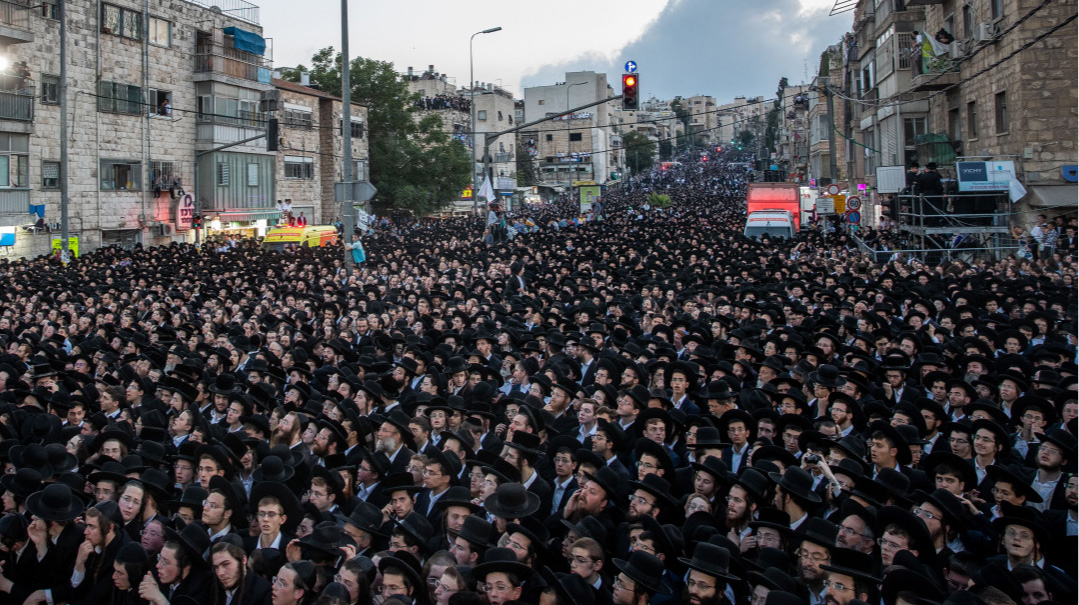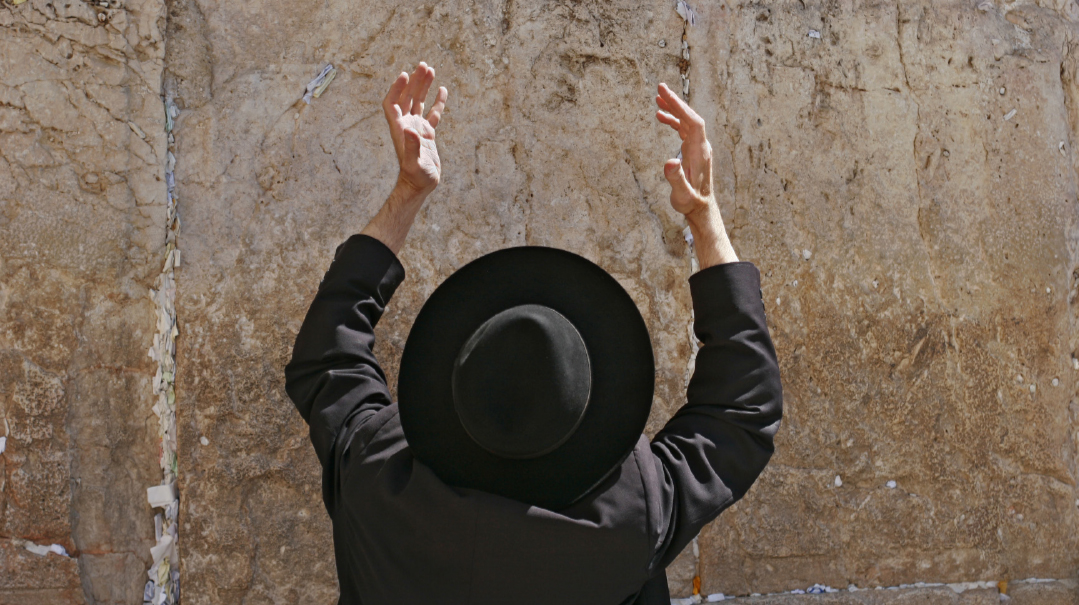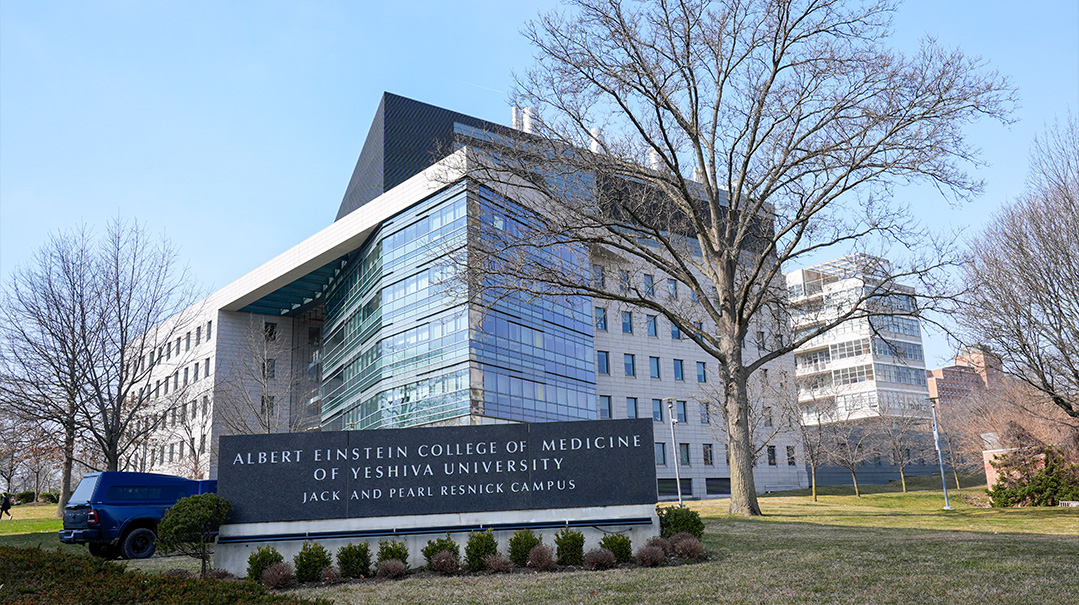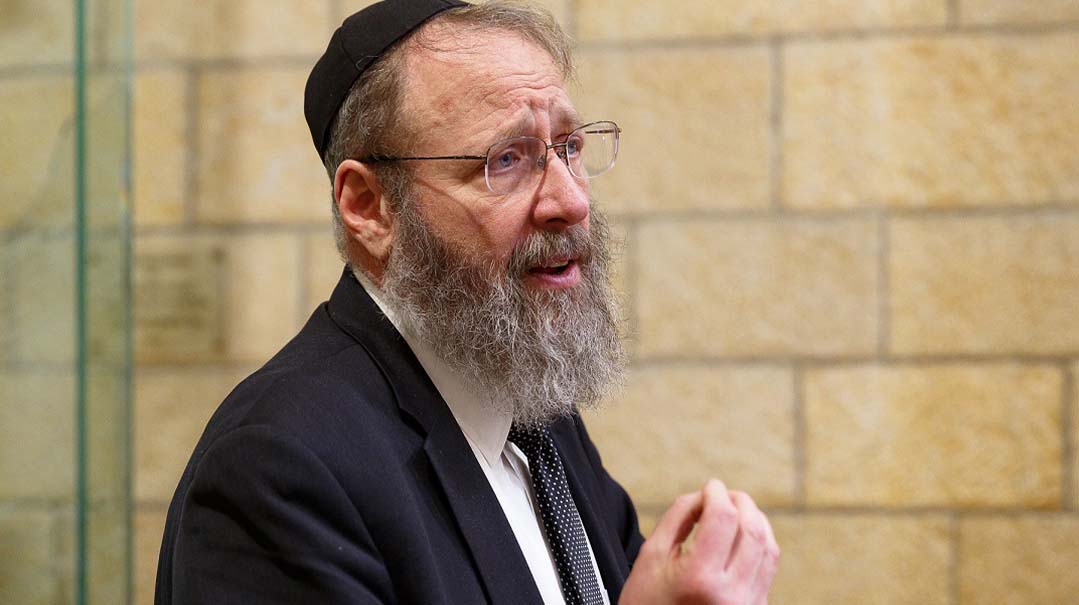Living the Dream

How the American Dream pertains to our dreams, goals, and aspirations as frum Jews living in this country
T
his past winter, I visited Eretz Yisrael with my husband and children for the first time in 18 years. I am an only child. Besides my parents, the rest of my small family lives in Israel. It was impossible to truly catch up. There’s so much to say, so much to learn from each other about life — and actually, quite a bit to mourn as you introduce your children, some of whom are young adults, to this house full of people they’ve never known.
One observation my cousin shared with me made a profound impression. My cousins are South African and moved to the States as adults before making aliyah. I, however, was born and raised in America.
“You are your parents’ American Dream,” my cousin reflected.
To see yourself as others see you can be enlightening. With this one line, everything made sense, but I had never thought of myself that way. My parents came to this country to live the American Dream (if you read “Got Any Gum, Chum?” in the Pesach issue, that’s my dad) and I was their one child, their one chance to pass it on. I was born in Manhattan but raised in idyllic Atlanta, Georgia. I went to summer camps, took piano lessons, got braces, and graduated from college. In the middle of that trajectory, we joined the Orthodox community. My cousin was right: I was raised living the American Dream without even knowing it.
This observation led me down a path of reflection not only about my life, but about how the American Dream pertains to our dreams, goals, and aspirations as frum Jews living in this country.
What is the American Dream? According to the Oxford Dictionary, the American Dream is “the ideal by which equality of opportunity is available to any American, allowing the highest aspirations and goals to be achieved.” We tend to misinterpret the American Dream to be about having stuff — the proverbial white picket fence, the renovated fixer- upper, the two leased cars in the driveway.
But the American Dream is really about having opportunity. It incorporates the ideals of democracy, rights, liberty, individualism, and equality. The term was coined in 1931 by American writer and historian James Truslow Adams, who said, “Life should be better and richer and fuller for everyone, with opportunity for each according to ability or achievement.”
Over the years, there have been discussions about whether or not the American Dream is dead. The question has emerged once again with a new Wall Street Journal poll conducted by the University of Chicago and published this spring, which indicates that America is pulling back from the values that once defined it.
According to an NBC News/Wall Street Journal survey conducted in August 2019, 89% of Americans thought hard work was very important; over 60% felt that patriotism was very important; 48% saw religion as very important, and 43% saw having children as very important.
The new Wall Street Journal poll, however, indicates that support for all these values has dropped significantly. Now, only four years later, just 67% of Americans see hard work as very important, 38% see patriotism as very important, 39% feel religion is very important, and 30% see having children as very important.
What about the values that define us as frum Jews? While we would need our own WSJ poll to see how the pandemic has impacted some of our societal values, our stand on the importance of religion, community, having children, and “patriotism” for Yiddishkeit — all key components of our mesorah — wouldn’t falter significantly within the span of four years. While certainly there are nuances in each category that might warrant further investigation, our overarching values don’t become upended as so many of them have in general society. Fealty to our mesorah has gotten us through longer and harder times.
So, do we have a frum version of the American Dream that keeps us aligned with our values and aspirations as we try to build the life we want for ourselves and for our children?
IF the original American Dream is not about having things but about having opportunity while allowing the highest aspirations and goals to be achieved, then the frum American Dream is about aspiring to spiritual wealth, as opposed to material riches. Even in America, we can achieve spiritual greatness. In a nod to Adams, life is better and fuller and richer when we grow and achieve. We can all be afforded opportunities to learn, to grow and to reach our most lofty aspirations and goals for a life dedicated to Hashem and Torah ideals. And like the original American Dream, we don’t only want this for ourselves. We want these opportunities for our children too. We have this dream for the whole family.
And we don’t want the winds of general societal change to impact that vision. We want, for ourselves and for our children, to be strong in the face of shifting standards in the outside world. Just because American society seems to have lost its grasp on its core values even over a few short years, we are determined to hold on tight to our defining beliefs.
For my parents, the American Dream informed the goals and aspirations they pursued as they tried to create the life they wanted for themselves and their only child. We lived in the right suburb that had the best public schools. America is the land of opportunity, and their dream was for me to get a college education. No avenue of possibility would be blocked off from their daughter.
Indeed, becoming frum blocked off a number of avenues of possibility, but it opened up a whole new world they could never have imagined. Putting spiritual opportunities first often means saying no to other opportunities.
The summer before our family moved into the Orthodox community, I was enrolled in an acting camp at the local regional theater. The campers put on a series of skits at the end of the summer. Afterward, the program director came up to my parents and explained that one of the purposes of the camp was to recruit child actors to perform in the main theater year-round. He told my parents that I had talent and invited them to enroll me in the troupe. My mother was flattered, but without skipping a beat, she asked when practices were. Upon hearing they were on Saturdays, she promptly responded that we were Sabbath-observant and “I’m sorry, but my daughter will not be able to participate.”
My parents weren’t even fully shomer Shabbos at that point. How, then, did my mother have the strength of conviction to say no? Because my parents had developed new platforms of possibilities — Shabbos and living a life close to Hashem and His Torah. For that, my parents would close off this other avenue of possibility for their daughter. Quite simply, it wasn’t aligned with their new American Dream.
Fast-forward to 2023, and we, too, might need to ask the question: Is the frum American Dream dead?
Only if we let it die.
We have accessible, convenient, and rich opportunities for growth all around us. When we make excuses for not taking those opportunities, when we don’t stretch higher to achieve our spiritual goals and aspirations — and we stop even wanting to — a bit of that dream dies inside of us. We’ve stopped imagining who we can become and what we can achieve.
What about the frum American Dream for our children? My parents were blessed that their only child joined them in redefining their dreams and aspirations as we became religious together as a family. All us parents feel blessed when our children share our dreams for their spiritual growth and aspirations, staying on the path we so carefully laid out for them. But you cannot dream for another person, and there is no guarantee that our kids are going to necessarily be aligned with our spiritual expectations.
My dream is that our schools are places that enable all our children, regardless of learning style, differences, or ability, to have the equality of opportunity to make and achieve their academic and spiritual goals. That finding their place within the Torah world — and especially via their Torah institutions — be accessible, warm, and inviting. My dream is that all children receive the message that they belong. And that our homes are places where individuality is embraced, love is given unconditionally, and children are empowered to dream their own dreams, with our biggest and most beautiful dreams of spiritual aspirations and closeness to Hashem guiding them in their hearts and souls.
Alexandra Fleksher is the creative director of the Faces of Orthodoxy initiative and co-host of the Deep Meaningful Conversations podcast. She lives with her family in Cleveland, Ohio.
(Originally featured in Mishpacha, Issue 971.
Oops! We could not locate your form.





